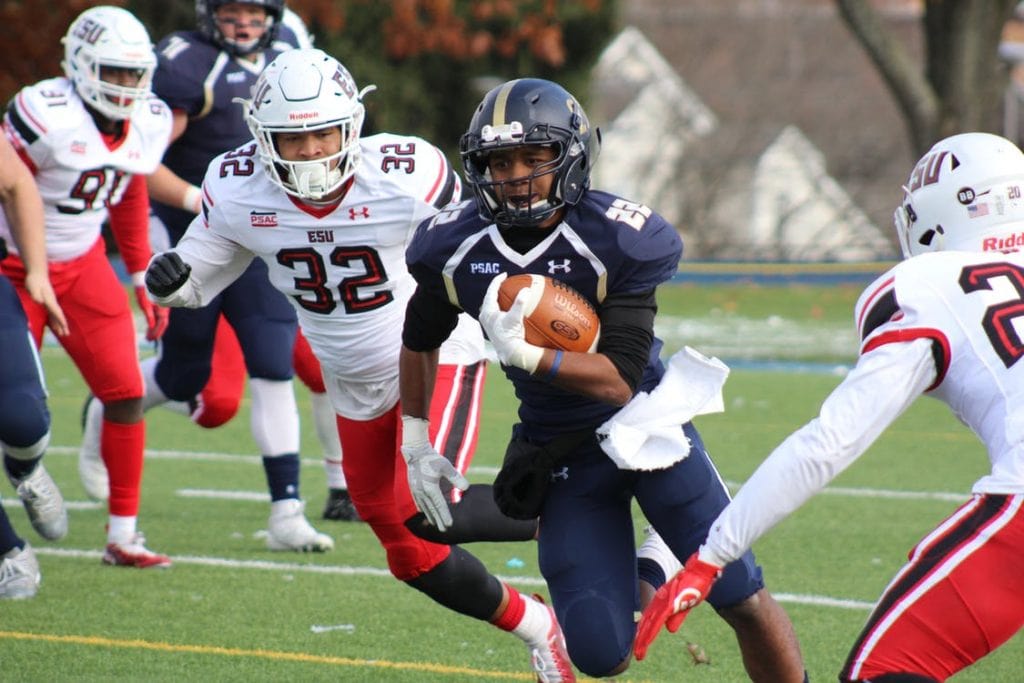In a development that has sent shockwaves through the college football world, it has been revealed that tickets for the last two Southeastern Conference (SEC) championship games were purchased in the name of a suspended Michigan football staffer who is the focus of an ongoing NCAA investigation into an alleged sign-stealing scheme.
The person at the center of this controversy, Connor Stalions, has become a central figure in a scandal that threatens to tarnish the reputation of one of college football’s most prominent programs.
Ticket purchases to football games in the name of a suspended Michigan football staffer who is the focus of an NCAA investigation into an alleged sign-stealing scheme have been found by multiple Big Ten teams. https://t.co/bmIA52jrDe
— Chicago Tribune (@chicagotribune) October 24, 2023
Sign-Stealing Background
The alleged sign-stealing scandal came to light when an individual with direct knowledge of the situation disclosed to The Associated Press that electronic records revealed Connor Stalions had purchased tickets in his name for the SEC championship games at Mercedes-Benz Stadium in Atlanta. Notably, these tickets weren’t limited to Michigan’s Big Ten rivals but also extended to potential College Football Playoff opponents for the Wolverines. The implications of this revelation have far-reaching consequences, as it raises questions about the integrity of the game and the ethics of college football.
Michigan’s Recent Success
Embed from Getty ImagesMichigan has enjoyed a resurgence in college football, winning the Big Ten and securing a place in the College Football Playoff in each of the last two seasons. Their Orange Bowl semifinal appearance in 2021 and their run to the Fiesta Bowl semifinal in the following season punctuated their remarkable journey. The Wolverines, under the guidance of head coach Jim Harbaugh, were on the cusp of becoming national champions, with the NCAA now looking into allegations that could potentially tarnish their achievements.
NCAA Rules and Violations
While NCAA rules do not directly prohibit the stealing of signs, there are regulations against using electronic equipment to record an opponent’s signals. Additionally, an NCAA bylaw restricts off-campus, in-person scouting of future opponents during the same season. This scandal has raised questions about the ethical conduct of coaches and their responsibility for violations that occur under their supervision.
Jim Harbaugh’s Involvement in Sign-Stealing
Embed from Getty ImagesJim Harbaugh, the head coach of the Michigan Wolverines, served a three-game suspension earlier this season for an unrelated NCAA violations case related to recruiting. Despite this suspension, Harbaugh vehemently denied any involvement or knowledge of the alleged sign-stealing scheme.
His denial has been a focal point of the ongoing investigation, causing ripples not only within the college football community but also in the world of football sportsbooks. The uncertainty surrounding these allegations has left football sportsbooks and sports bettors on edge, as they grapple with the potential impact of this controversy on betting lines, odds, and the broader landscape of college football wagering.
Extent of the Allegations
The scope of the alleged sign-stealing operation is expansive. ESPN reported that Stalions purchased tickets in his name for numerous games involving Michigan’s Big Ten rivals over the past three years, including games against several potential College Football Playoff opponents. Stalions also forwarded tickets he purchased to at least three different people, suggesting a broader network may have been involved in the scheme.
Ongoing Investigation into Sign-Stealing
The NCAA’s investigation into Michigan’s alleged sign-stealing began in October, and it has already had a significant impact on the program. Michigan suspended Stalions with pay while the investigation proceeds and the university is cooperating fully with the NCAA. The NCAA has reportedly obtained video evidence of the illegal technology used in the alleged sign-stealing scheme, which will be crucial to the ongoing investigation.
Conclusion

The alleged sign-stealing scandal surrounding the suspended Michigan analyst Connor Stalions has sent shockwaves through the world of college football. The implications of these allegations extend beyond just one program; they raise questions about the ethical conduct of coaches, the integrity of the game, and the need for transparency and accountability in college sports.
As the NCAA investigation unfolds, the college football community watches with bated breath, hoping for a resolution that upholds the principles of fair play and sportsmanship in the sport. Michigan’s success hangs in the balance as the investigation continues, with an uncertain future for one of the nation’s top football programs.
Come check out Belly Up Sports on Twitter/X for more sports and entertainment news and content. Featured image credit to Gregory Shamus / Staff / Getty Images.






